Istanbul
Need to set the mood for this page?
Listen to this
song,
and you'll be humming it all day!
Subway Art
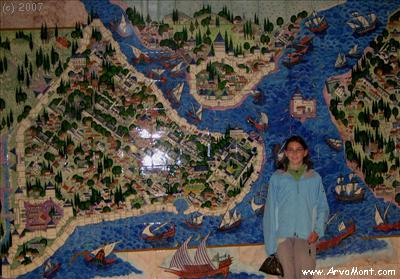
Istanbul is a big city full of big
history. This is because it lies in a strategic spot. The old city
lies at the confluence of the Bosphorus, the Golden Horn and the Sea of Marmara.
The Bosphorus is the very narrow strait that connects the Black Sea to the Sea
of Marmara. This is how Russia, Georgia, the Ukraine and Romania were
connected to the rest of the world. In the photo to the left, the Bosphorus is located above Tasha's
head. The Sea of Marmara is quite large - not the sort of lake that you
can easily see across - and it flows into the Aegean Sea , which is part of the
Mediterranean, through the Dardanelles Strait. Along with the Bosphorus it
separates the Asian side of Turkey from the European side, though why the
continental boundaries are there isn't clear to us at the moment.
The Asia side is the land mass on Tasha's left side, so on the right in the photo.
The Sea of Marmara is what Tasha is standing in front of. The Golden Horn
is a natural harbor, which the rulers of Istanbul in it's earliest incarnations
as Byzantium, New Rome and Constantinople, used well. The harbor was
enclosed and protected. The Golden Horn goes off to the top left in the
picture. The old city is just to the left of Tasha's right shoulder.
This is where the Hagia Sophia stands, as well as the Blue Mosque and the Grand
Bazaar and the Tokapi Palace. It was once enclosed by great and mighty
walls, many of which are still standing.
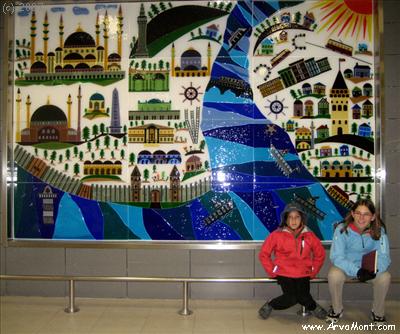
Here we have another piece of
subway art - though from a different station, also depicting the old city.
The mosque on the top left is the Blue Mosque - 6 minarets is the give away!
The Hagia Sophia, first commissioned as a Christian church when Constantine
came to town in the 300's, is the building on the far left with four minarets.
(Yes, the church was used for centuries as a mosque.)
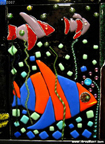


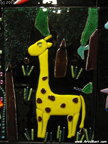
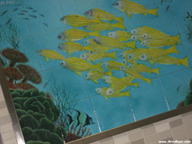
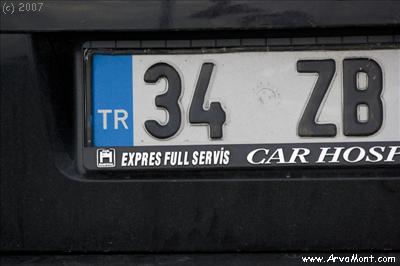
One of the first things that Tasha
noticed when we arrived in Turkey were the license plates, which are all set up
and ready for EU membership, which sounds like it is far from assured based on
the politics we hear about over here.
The Hagia Sophia
The current Hagia Sophia was completed in the 537. It was the largest
cathedral in the world for over a thousand years! In particular, the dome
is meant to be amazing. Unfortunately, there is scaffolding in the center
of the dome at the moment, so it was not clearly visible. In the 1400s
Constantinople was conquered by the Ottoman Turks and Sultan Mehmed II ordered the Hagia Sophia to be converted into a mosque. It stood for the next 500
years as a model of a beautiful mosque.
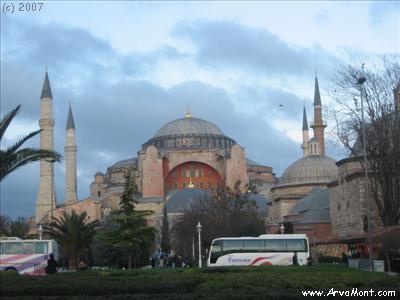
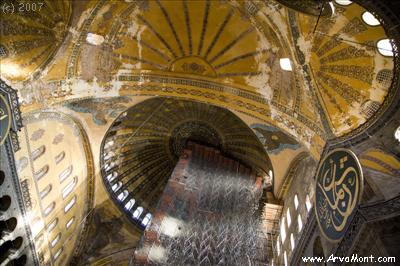
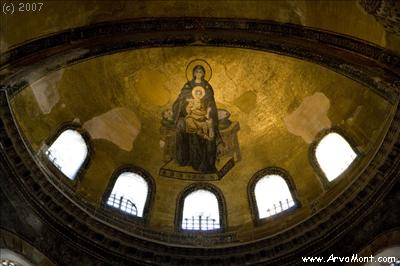
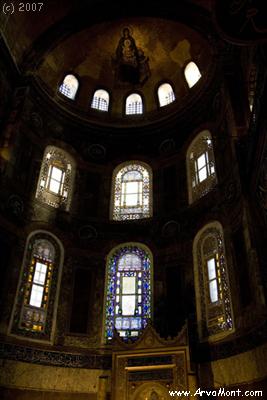
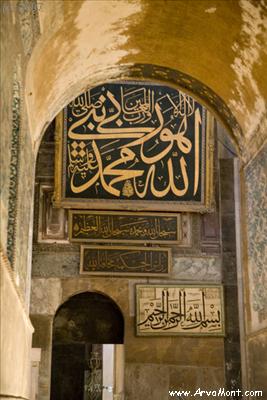
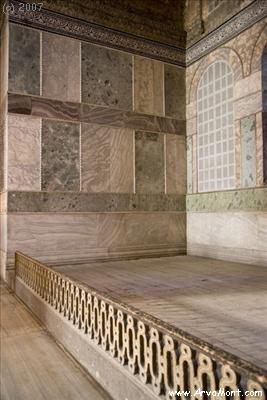
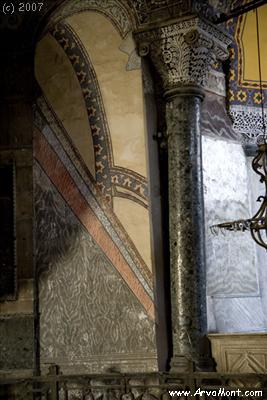 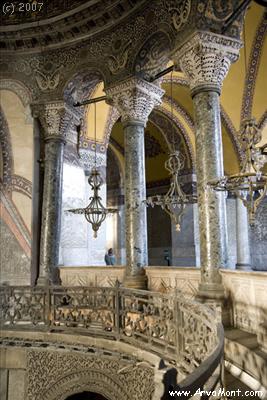
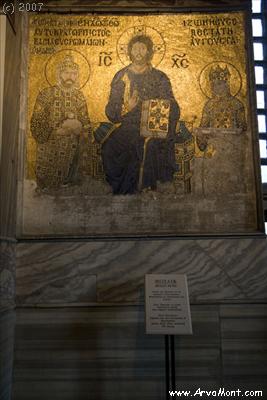
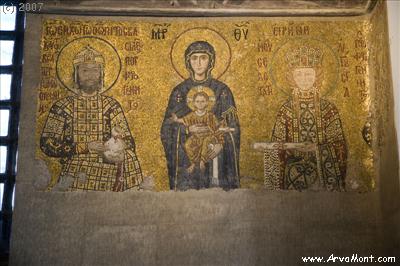
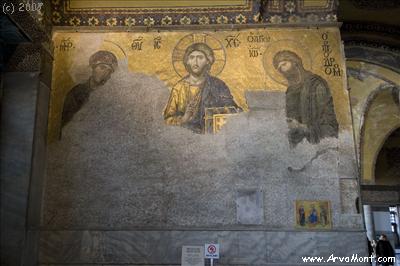
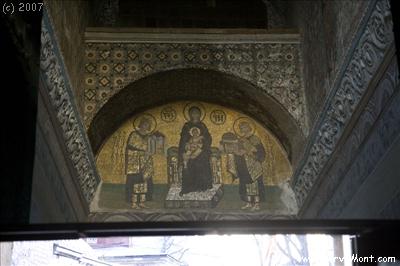
We were told that if you know the right
guard it is still possible to get a few pieces from one of these old great
mosaics. This probably explains their current state. They were once rather
well preserved, as they were hidden from view when this church was used as a
mosque.
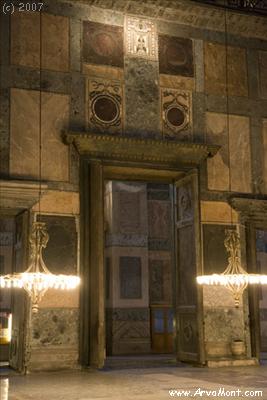
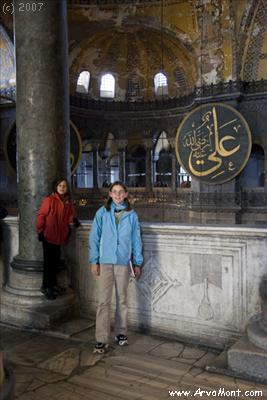
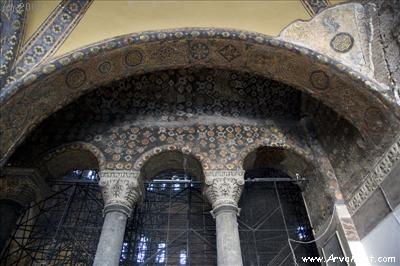
The Blue Mosque
The Blue mosque is one of many modeled after the Hagia Sophia. It is easily
identified by its six minarets. It is the landmark of Istanbul.
Unlike in Morocco where admission to mosques was forbidden to non-Muslims
(probably a sensible rule), in Istanbul it was possible to step inside the
mosque (barefooted, of course) provided it you do so outside of the time for
prayers.
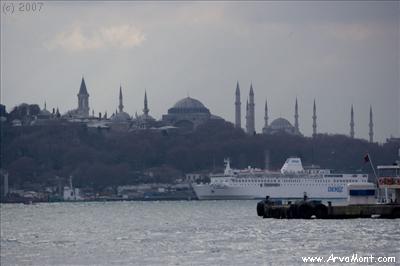
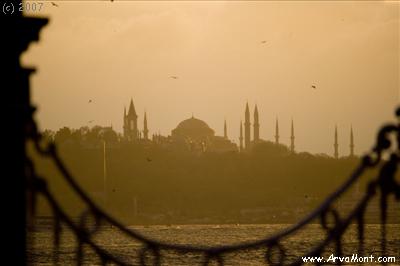
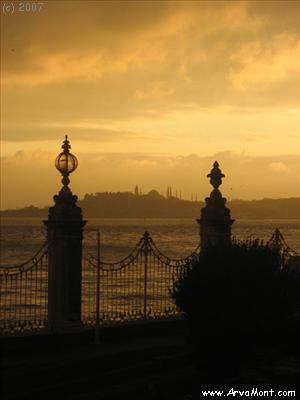
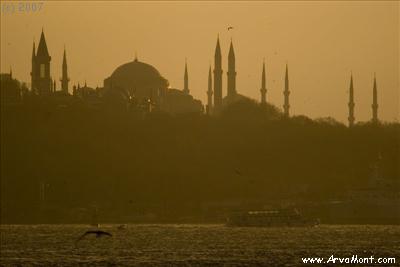
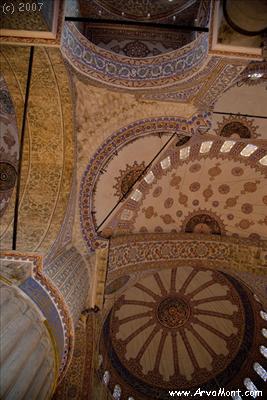
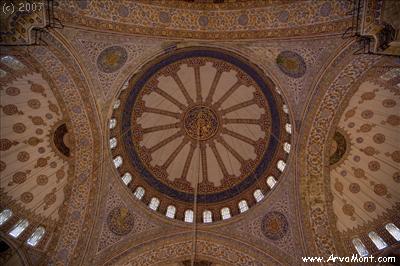
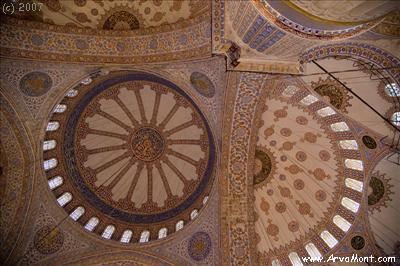
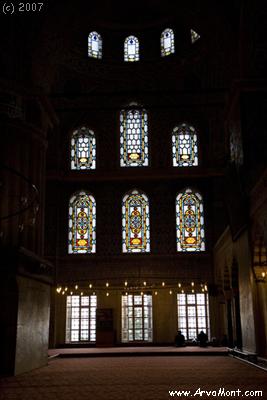
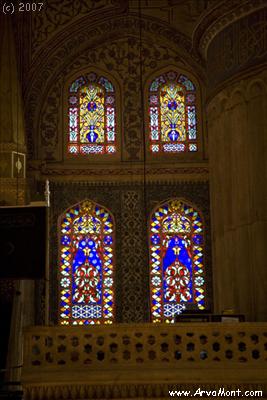
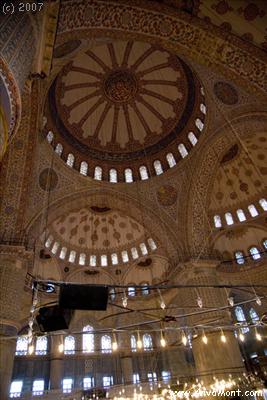
The Dolmabahce Palace
This is a late period palace, being only 150 years old. It was built in
the model of the great European palaces, with one major difference. It had
to accommodate the sultans harem. As men and women in the Ottoman times
did not mingle outside of families, there are parts of the palace that were used
for running the Ottoman Empire, and there were parts that were used for
entertaining visiting men, and their were the parts used by the family.
Some of the rooms in this palace are huge, one of them contains a chandelier
that weighs more than 4 tonnes!
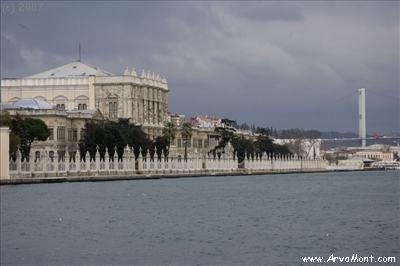
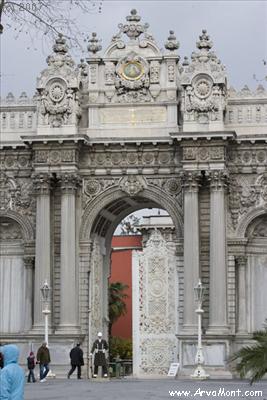
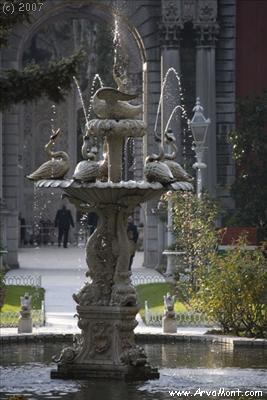
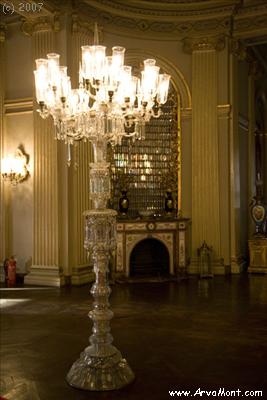
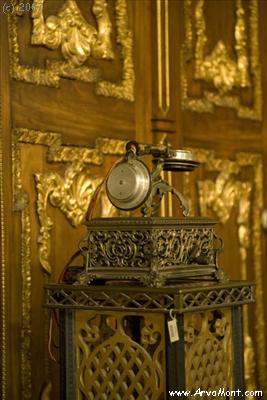 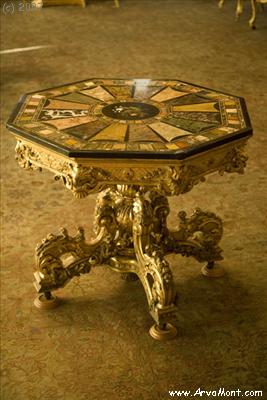
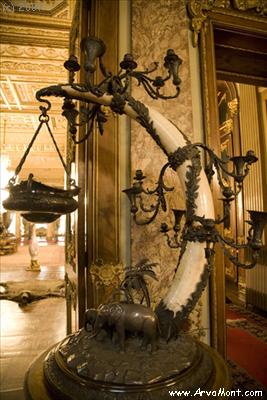 The
first telephone in the palace - a Siemens, apparently. The
first telephone in the palace - a Siemens, apparently.
A beautifully inlaid table.
A gift from an African dignitary, one
of a pair of chandeliers made using matching elephant tusks.
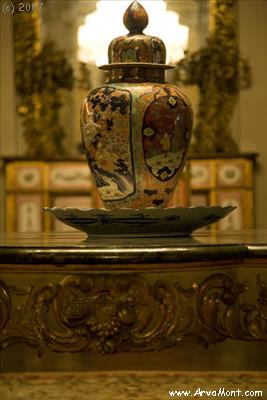
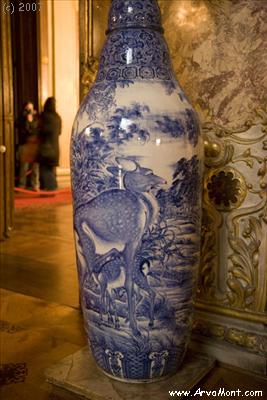
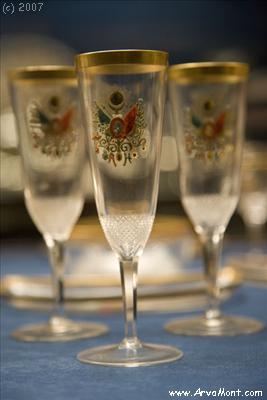
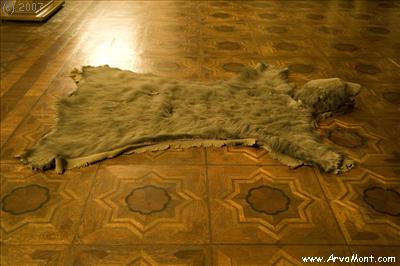 A gift from Tsar Nicholas - a pair of Siberian grizzly skins.
A gift from Tsar Nicholas - a pair of Siberian grizzly skins.
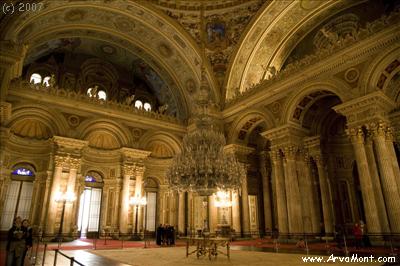
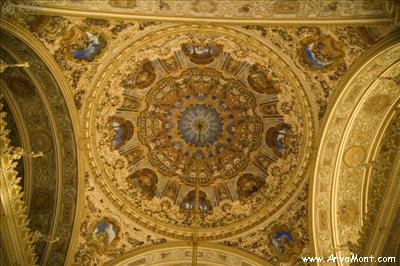
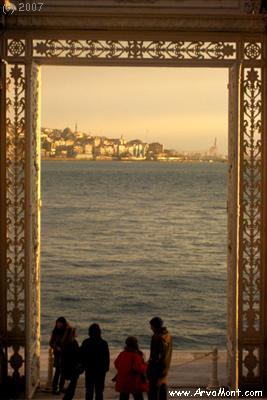
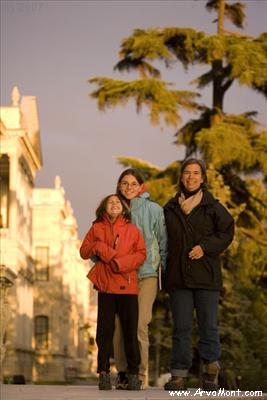
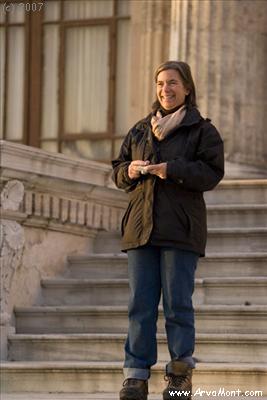
Our Neighborhood
We stayed in Şişli, which is across
the Golden Horn from the old city, but is right in the heart of modern Istanbul.
Just a few blocks from our apartment was Cevahir Shopping Center. It is
said to be the largest shopping center in Europe, and has inside several
amusement rides inside, as well as a multiplex.
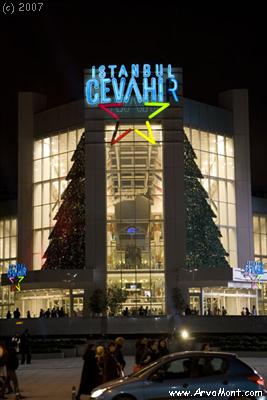
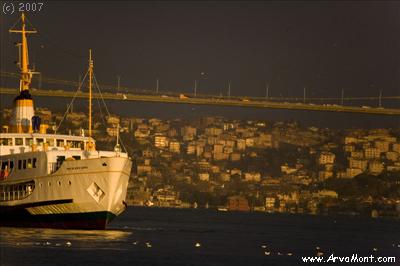 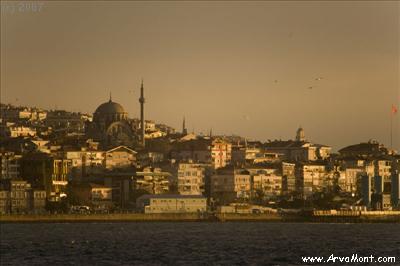
From Istanbul we flew to
Athens.
| 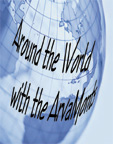 Around
the World With the ArvaMonts
Around
the World With the ArvaMonts


















































